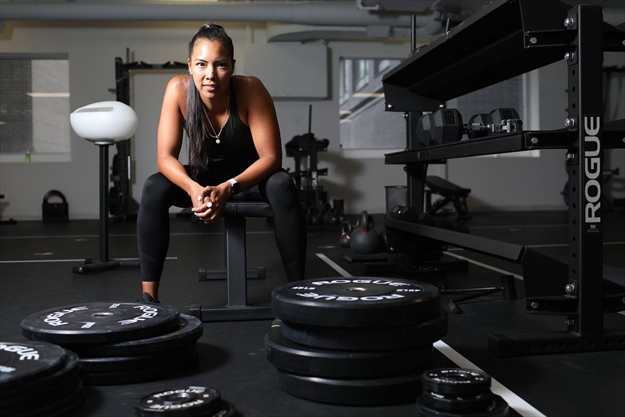Restaurants, bars and gyms around Ontario were grappling Saturday with a challenge that has become all too familiar this pandemic year — trying to adjust business practices and protocol to new COVID-19 restrictions, again.
In Mississauga, Jake Malone, general manager of whisky bar Door FiftyFive, was presiding over patio service — the only place he can serve customers now that Premier Doug Ford as part of a new list of restrictions as COVID-19 cases continue to rise.
“Today is the first day with these new rules in effect, so we are still open, but running on bare bones, a skeleton crew, and just kind of seeing what it’s like,” Malone said.

Their first morning under the new restrictions that limit restaurants and bars to patio and takeout or delivery service had been fairly busy, until a short rain shower chased people away, he said. For now, the restaurant is playing it by ear in the hopes they can avoid another short term closure, and temporary layoffs.
“It’s been a lot to handle,” he said.
The rules have changed back to modified Stage 2 rules, meaning Toronto, Ottawa and Peel businesses are under a 28-day ban on indoor dining and drinking at restaurants and bars, while gyms, theatres and casinos must close their doors immediately. “This pandemic has picked up pace at an alarming rate,” Ford said Friday.
Door FiftyFive, like many other businesses, is hoping people embrace the weather and extend the patio season as long as possible. While Malone notes outdoor heaters remain in short supply — they’ve been an in-demand pandemic purchase — staff is encouraging customers to bring blankets or shawls, and are considering supplying their own.
A newly cosy patio is only their latest pandemic pivot, Malone says. Over the summer they tried different specials and sales, did more takeout, even brought in DJs though there was no dance floor allowed, and have been mulling starting a trivia night.
But with winter approaching, the pressure is on. “Every single day is going to be important,” he said.
Julie Mitchell, founder of spin studio Torq Ride, says she’s fortunate that she owned the outdoor space to allow her and her staff to move 18 bikes into the laneway this summer and — after sorting out some issues with their “amazing” neighbours around music — run classes outside.
With inside classes now a no-go, her focus is on running those classes as long as clients are willing to go outside, and the bikes, which are covered in tarps every night, are able to handle the elements. She’s also launching bike rentals and video streaming classes to pick up some of the slack this winter.
While her revenue has dropped by about two-thirds, she says she understands the restrictions. And she’s exploring making the outdoor program permanent next year, an expansion which could be an unexpected boon after a tumultuous year.
“Our team has been just really rallying to get us through this. And that’s been also amazing,” she said.
Other fitness facilities are also now negotiating a pivot back to online classes.
At least this time it’ll be easier, now that everyone knows how to use Zoom, said Jennifer Lau, a personal trainer and co-owner of Fit Squad, a personal training and group class facility in Toronto, although the restrictions are still a major blow to gyms that were just beginning to get some momentum back after the closures in the spring.
But moving online isn’t nearly enough to make up for the business she’ll lose from cancelling in-person training, and the sense of community she says gyms can foster is lost entirely.
Lau, who is also co-founder of the Save Health and Wellness Coalition, adds that she’s frustrated about the lack of transparency around how and where the virus is spreading. If smaller facilities like hers are the problem, she argues she has a right to know.
“It’s the continued rhetoric of how gyms are this high risk, unsafe place, so we have to rebuild that trust every single time we get shut down,” she said.
“It’s a hard pill to swallow.”
